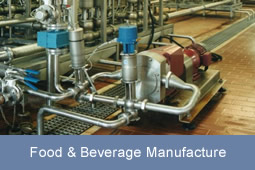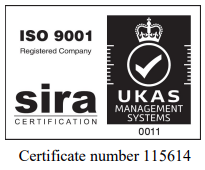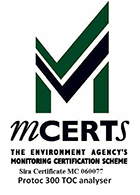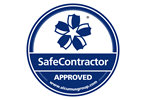Some of the key considerations for water quality measurement are outlined by a series of short articles which review current environmental legislation, continuous water quality measurement and instrument selection.
Strict environmental regulation is forcing industry to implement a more comprehensive monitoring policy. The ability to identify a pollution event in real- time, to trend processes and demonstrate environmental compliance requires reliable continuous water quality monitoring solutions.
Pollution & Process Monitoring Ltd., are experts in the field of water quality instrumentation including bespoke monitoring solutions, used to provide continuous measurement of water, waste-water and surface water quality.
Continuous Water Quality Monitoring at Waste to Energy Plant
Waste to Energy facilities need to monitor surface water quality
Pollution & Process Monitoring (PPM) Ltd has supplied two water quality monitoring stations to a new “Waste to Energy” facility, located in the NE of England.
The large industrial complex accommodates more than ten separate manufacturing companies, supplying a diverse range of speciality chemicals and industrial products. All these companies discharge surface water and process waste streams, to a common site drainage system requiring them to individually monitor their own discharges.
Protoc TOC analysers at Heineken continue to optimise effluent quality and reduce operational costs
The Heineken - John Smith's Brewery located in Tadcaster, use eight Protoc TOC analysers to monitor key effluent streams and proactively manage their site effluent. After ten years of continuous operation, the instruments are still performing reliably and are an integral part of the Company's environmental compliance.
The site has used the Protoc analysers to gain a better understanding of upstream processes and reduce the load entering the on-site treatment facility. Improved measurement and control, has improved effluent quality and reduced operational costs.
Continuous water quality monitoring replacing discrete sampling
Why is there more reliance on continuous water quality measurement in preference to taking discrete samples for water analysis?
Historically, discrete samples would be analysed periodically by an on-site laboratory or sent to a third party laboratory for analysis. However the delay in obtaining test results combined with issues of obtaining representative samples (the difficulty to always capture specific events) and sample integrity have influenced industry's approach.
How environmental legislation impacts industry
Environmental considerations are of paramount importance for all types of industry and are underpinned by stringent environmental legislation.
The cost of non-compliance has been recently demonstrated by a number of headline cases publicised in the trade press with several major Water Utilities receiving fines in excess of £250,000 for past non-compliance. A maximum fine has been set at £3,000,000.
Making The Correct Water Quality Instrument Selection
The need for the water industry to become progressively more efficient has driven an increased level of process automation. The installation of on-line instrumentation should allow operators to optimise their treatment processes. There are many examples were continuous measurement has reduced energy consumption, minimised chemical usage and improved compliance. Equally, there are also many instances where these objectives have not been fully realised.








